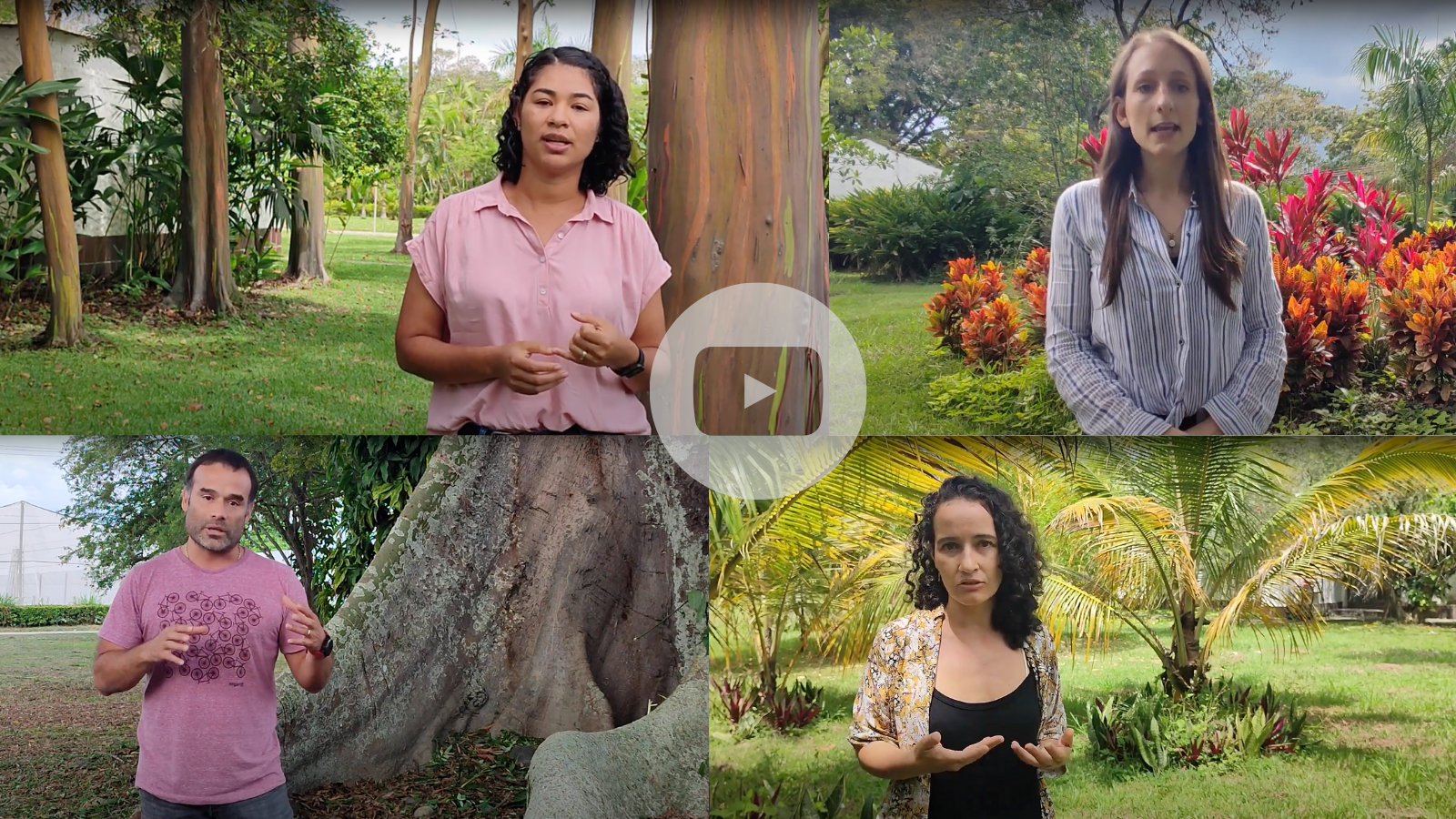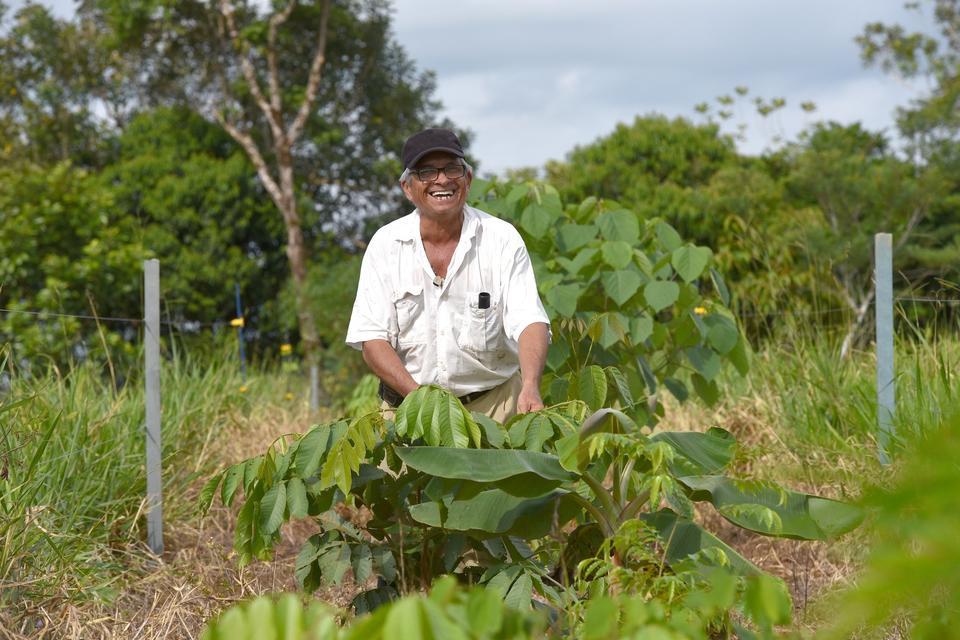Blog Ask the Researchers: How does sustainable land use foster peace in Colombia?

In this series of short videos, researchers explain the core concepts of their work in rural Colombia, which links climate resilience, forest conservation, and peace-building.
By: Valentina Yomayuza, Martha Vanegas
In Colombia, there is a vicious cycle between climate change and conflict. By looking at more sustainable forms of land use, Alliance researchers are able to promote both climate security and peace, as part of the “Implementation of sustainable land use systems for forest conservation, climate protection and peace-building in Colombia” (SLUS) Project. Learn more with these short videos:
How are deforestation and conflict linked?
Closed captions available (cc).
"Our study published in the journal Frontiers suggests that the main drives of deforestation in the Amazon region are cattle pastures, however, in the Andes region, the main driver of deforestation is connected with the production of coca leaf."
- Augusto Castro, SLUS Project Principal Researcher
Join us at the 58th Annual Meeting of the Association for Tropical Biology and Conservation (11 July) Symposium: "Analysing the effects of armed conflict on forest cover, land-use and biodiversity conservation in Colombia".
What are benefits of recovering land through sustainable land use systems?
Join us at the 58th Annual Meeting of the Association for Tropical Biology and Conservation (12 July) Symposium: "Sustainable Land-Use Systems to foster simultaneously climate change mitigation, forest conservation, and Colombian peacebuilding goals".
What can be done to make agriculture more sustainable, for example, in the cacao sector?
"In Colombia, the agricultural sector is the main source of greenhouse gas emissions. It has a huge responsibility but also huge potential to mitigate these impacts.
For example, in the case of cocoa cropping systems, many farmers can combine cropping systems with agroforestry species, which have the potential to decrease greenhouse gas emissions, and also has other attributes in terms of economic benefits and social cohesion."
- Miguel Romero, SLUS Project Researcher

